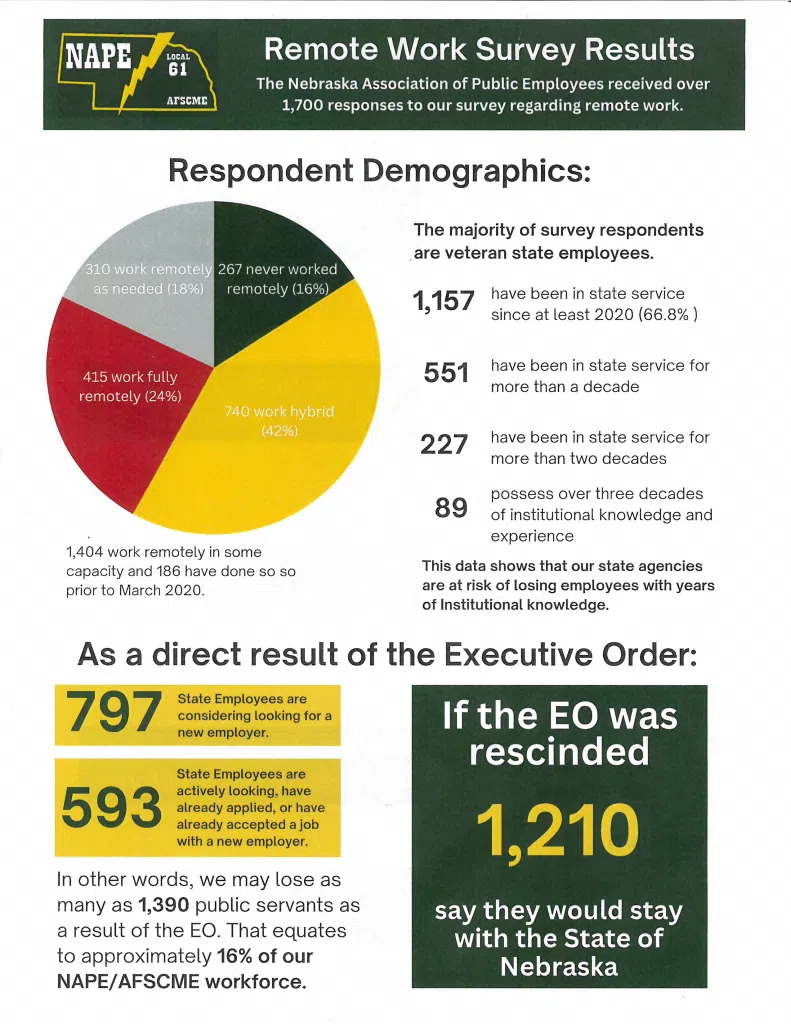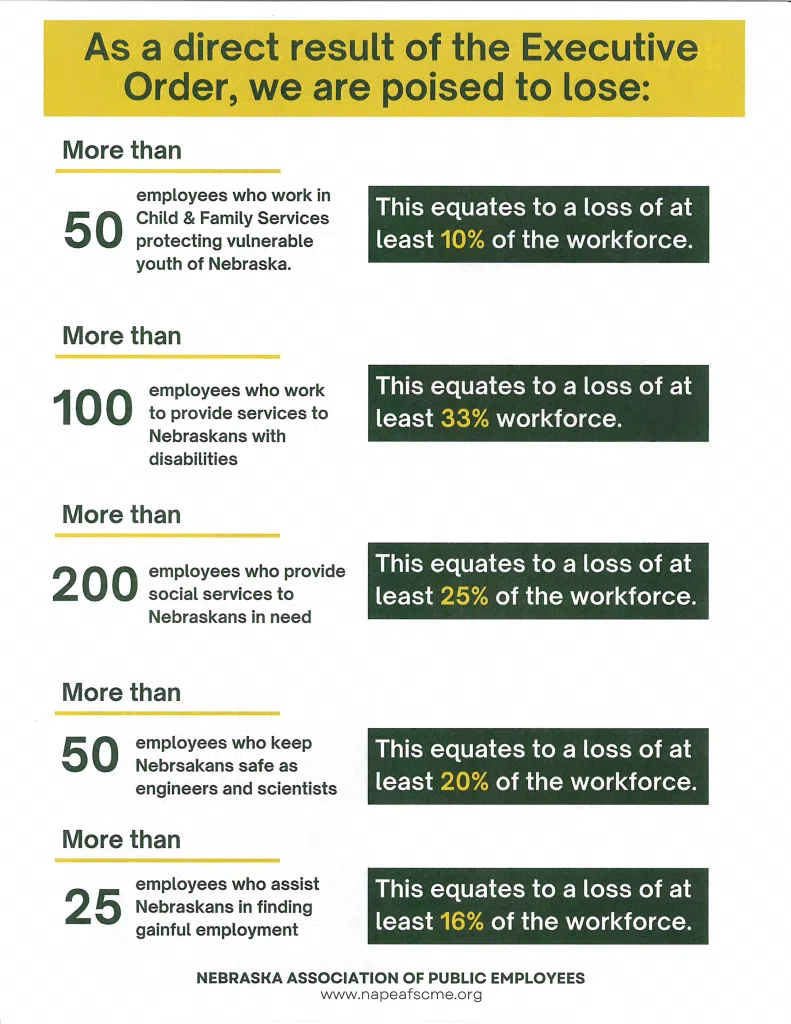The State Employee’s Union has renewed their request for a seat at the bargaining-table with Governor Jim Pillen, and are considering all options to initiate negotiations.
Governor Pillen signed an executive order (EO) in November, recalling all state agency employees who have continued to work remotely since the COVID-19 pandemic. Shortly after, the Nebraska Association of Public Employees (NAPE, the state workers union) responded to the Governor’s order, demanding negotiations on contract language in regards to remote work.
NAPE represents over 8000 state employees, who work in all 93 Nebraska counties, in more than 350 job classifications.
Thursday afternoon, December 7th, NAPE members gathered in the State Capitol Rotunda on their lunch break to provide an update on their effort. Executive Director of NAPE/AFSCME Local 61, Justin Hubly, detailed that the union has renewed their demand for bargaining with the Governor. After preliminary, negotiations with the Governor’s office produced a stalemate.
Hubly also took time to elucidate the atmosphere of remote work for state employees.
“The overwhelming majority of our members work at a state office/state worksite in person. Always have, probably always will, and did so throughout the COVID-19 pandemic,” Hubly clarified, “A critical number, between 1500-2,000 employees, work either fully remotely or in a hybrid work environment. Some have done so well before the COVID-19 pandemic”
Offering examples of state services still hinged on remote work, Hubly said, “Child protective services, assisting individuals with developmental disabilities, social services such as Medicaid and SNAP assistance, and more. The ability to continue these remote work opportunities is important for all of us because remote work assignments affect all of us, especially members of the public, who are our friends and our neighbors.”
“While we understand the governor’s priority, we want to spell out the order’s impact,” began Melissa Haynes of Fremont, NAPE President and Lead DHHS Social Services worker.
“While many employees need to, or want to work in person, others can effectively do their jobs in some form of remote assignment. A one size fit all approach does not work in 2023,” said Haynes,”The state of Nebraska remains critically short staffed, in a number of different areas. We must do everything in our power to retain our current employees… If we lose state employees, all Nebraskans will pay the price.”
NAPE conducted an internal survey of roughly 1700 of their members. Of which, about 1400 work remotely in some capacity. “There’s some concerning numbers in the data,” said Hubly.
The survey revealed nearly 1400 state employees have considered seeking, are actively searching, or have already applied for new employment following the governor’s executive order. Eight state agency employees have already accepted new positions with different employers in the 24 days since Pillen signed EO 23-17 on November 13th.
“That equates to 16% of our NAPE/AFSCME workforce. I don’t know how to put it more simply, we cannot afford to lose one in six of our workers,” said Hubly.
- Graphic results from NAPE’s Remote Work Survey, circulated at the Thursday’s press event at the State Capitol.
- Results continued. (Courtesy: Nebraska Association of Public Employees)
This loss is preventable, according to Hubly. Of the cluster of workers considering new employment, “1210 said if the executive order was rescinded or repealed, they would stay,” he ended optimistically, “We know if the governor agrees to negotiate with us, we can work out contract language that will meet everyone’s needs.”
Looking ahead with that sense zest, Hubly said NAPE members had the opportunity to meet with Governor Pillen’s Chief Negotiator regarding their demand to bargain. According to Hubly, the view of the Governor’s administration is that “…Remote work is simply the site of the work and the schedule. And therefore, there’s no need to negotiate with [NAPE] over this issue.”
NAPE, in return, has renewed their demands to bargain with the Governor over cotract language regarding remote work. Pillen’s administration has until December 12th, this coming Tuesday, to respond to the renewed request. Little more than three weeks until EO 23-17 is slated to take effect.
“If they aren’t willing to bargain with us, we will exercise our legal options to ensure that our members rights are respected and that the public interest is protected,” concluded Hubly. Promising an update in the next week, pending further negotiations or lack thereof.









